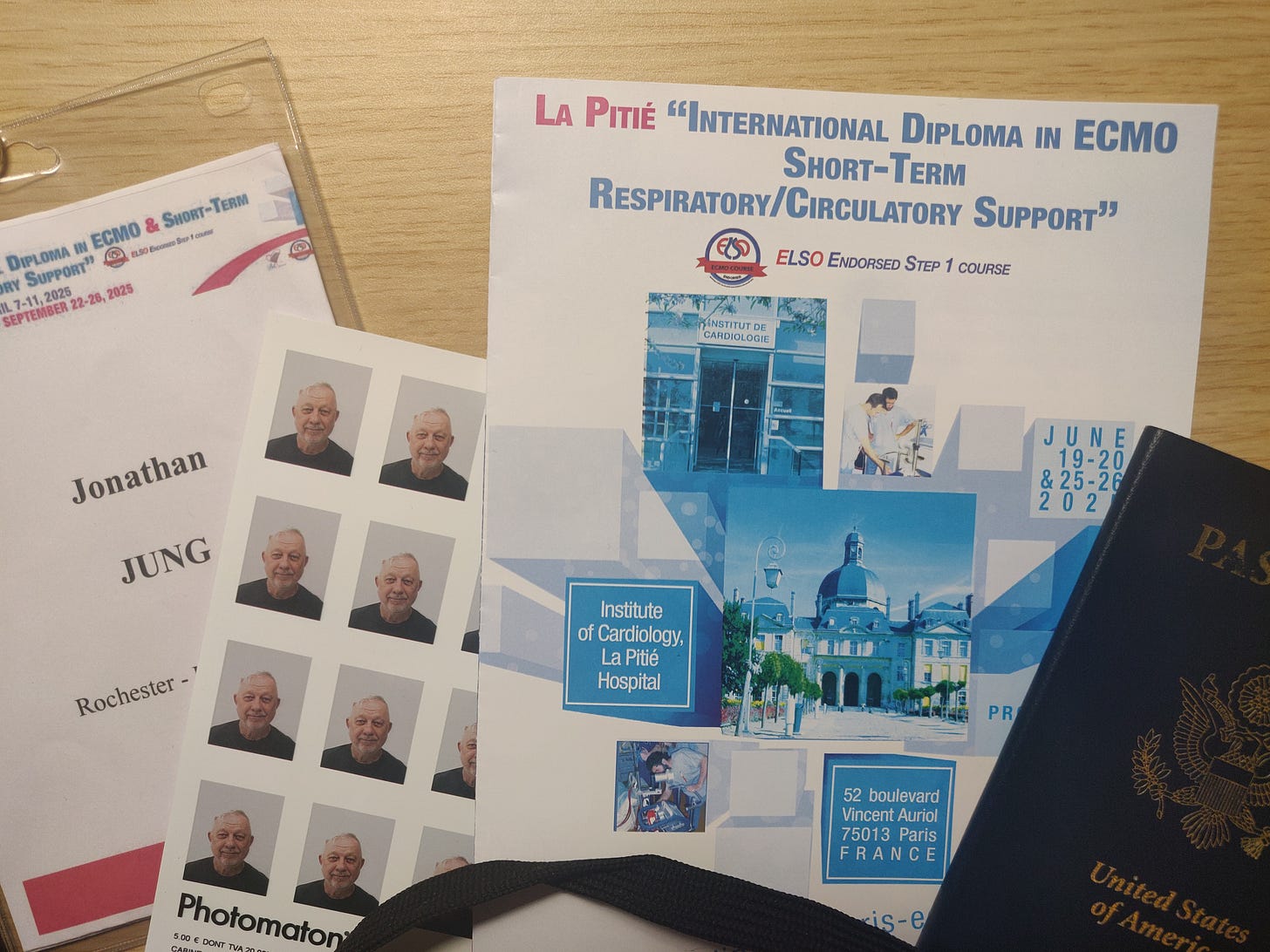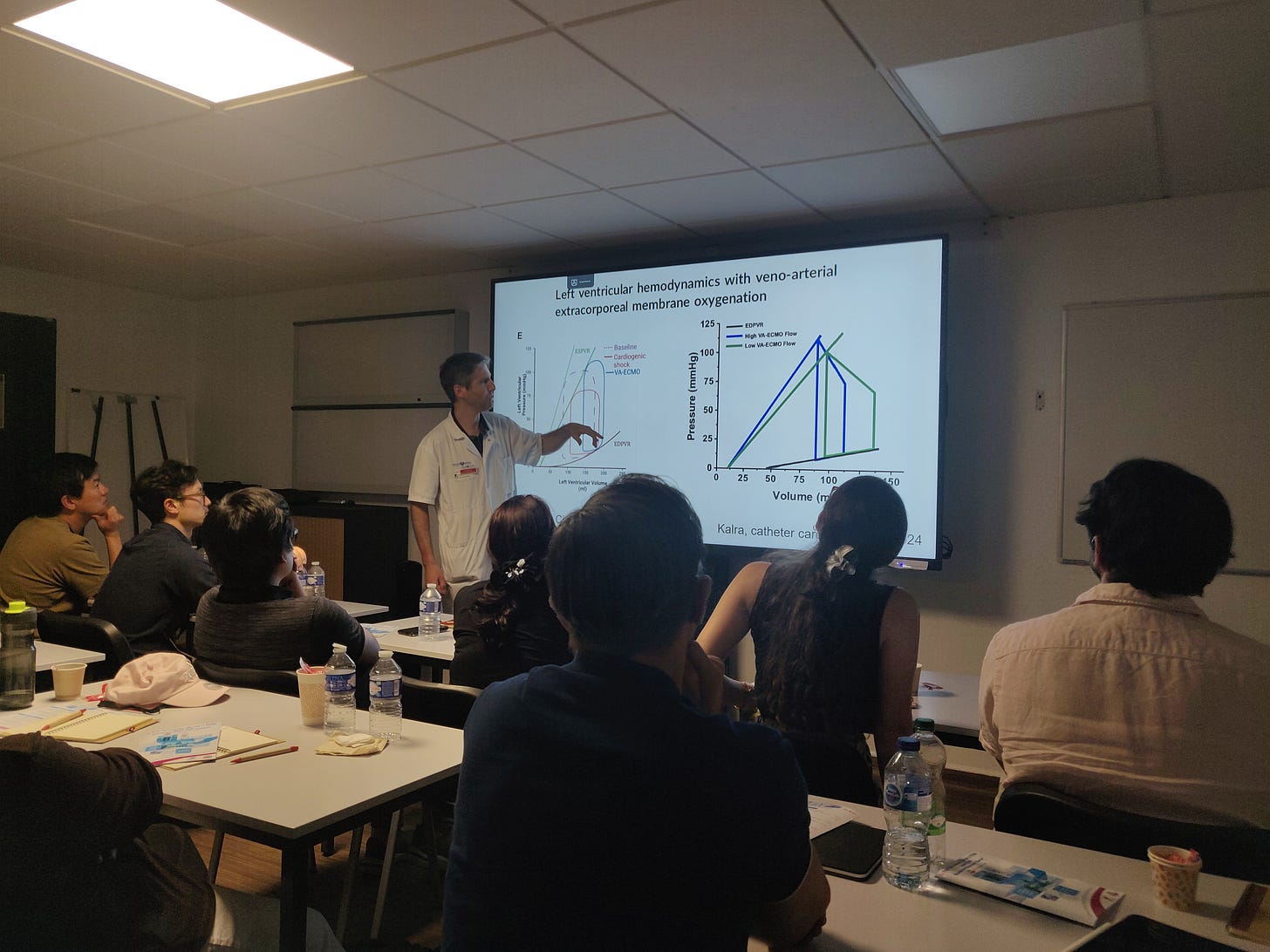ECMO in Paris: Days 1 and 2 of the La Pitié Diploma Course
This week, I started the International Diploma in ECMO & Short-Term Respiratory/Circulatory Support course at La Pitié-Salpêtrière Hospital in Paris. It’s part of an ELSO-endorsed Step 1 program, taught by Dr. Alain Combes, Dr. Guillaume Hekimian, and Dr. Matthieu Schmidt. These are three physicians deeply involved in ECMO development, research, and frontline practice.
The course is divided into four days of in-person sessions (June 19–20 and 25–26), with the ECOS-TCS Congress happening in between.
Week One Summary
Thursday, June 19
Overview of ECMO circuit components and coatings
Cannulation techniques for VV-ECMO
Lessons learned from the EOLIA trial
Gas transfer mechanics in ECMO membranes
Managing cardiogenic shock and peripheral VA-ECMO
Bedside talk
Practical simulation with the La Pitié team
Friday, June 20
Mechanical ventilation of patients on VV-ECMO
Proning while on ECMO: practical tips and risks
ECMO for refractory septic shock (learned a lot)
Nursing care and mobilization (nice to see how they manage the patient)
Pharmacokinetics under ECMO
Echo monitoring in ECMO (learned a lot)
Bedside talk

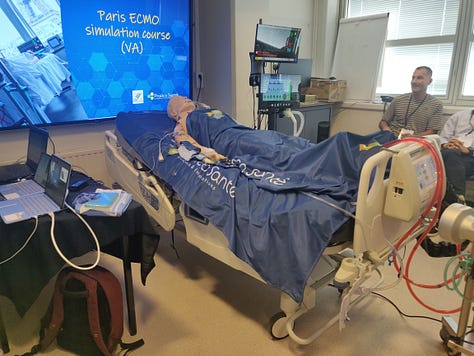

What Stood Out
The instructors have the ability to explain things in a very logical and straightforward way.
It is not just guidelines, but your ability for bedside decision-making
Dr. Combs was part of the EOLIA trial, and the results of the EOLIA trial continue to shape VV ECMO.
Practical breakdowns of complications, from pulmonary edema to drug clearance
Real-world stories that reflect the balance between aggressive support and patient trajectory. We visited patients currently on ECMO and we able to discuss their cases bedside.
What’s Next
We’ll spend June 23–24 at the ECOS-TCS International Congress at Cité Internationale Universitaire. Then it’s back to La Pitié for days three and four of the course next week, diving deeper into weaning, E-CPR, long-term outcomes, and advanced support options like ECCO2R and Impella.
More to come after the second week. Thanks to the team at La Pitié for the welcome and to everyone behind the scenes making this course possible.
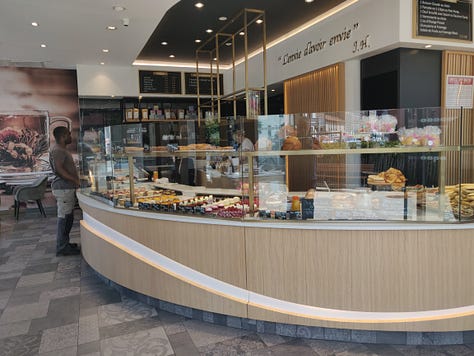


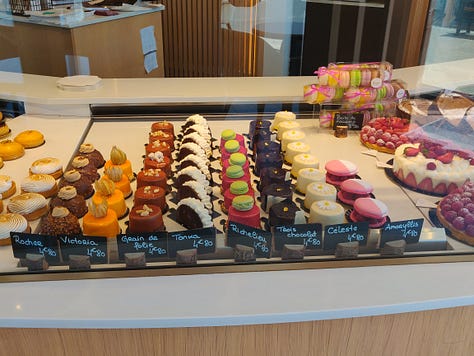


AI and My ECMO Learning Journey
AI plays a significant role in how I research, understand, and communicate complex ECMO topics. From analyzing source materials to organizing ideas and generating podcast outlines, AI helps me stay curious and keep learning, so I can continue sharing insights with you.
ECMO 143: Projects and Tools
As part of ECMO 143, I’ve developed these resources to support both professionals and families in the ECMO space:
lifesupport.training – Resources for ECMO and other professionals,
ecmo.life – Information for ECMO patients and their loved ones
YouTube: ECMO 143 – Occasional AI-supported podcasts
LinkedIn Newsletter: ECMO 143: AI-Assisted Journey
Custom GPTs available on OpenAI:
AI ECMO Expert – A custom GPT designed to assist with ECMO research and education.
Micro Definitions (MD-GPT) – A custom GPT providing concise definitions for medical terminology.


